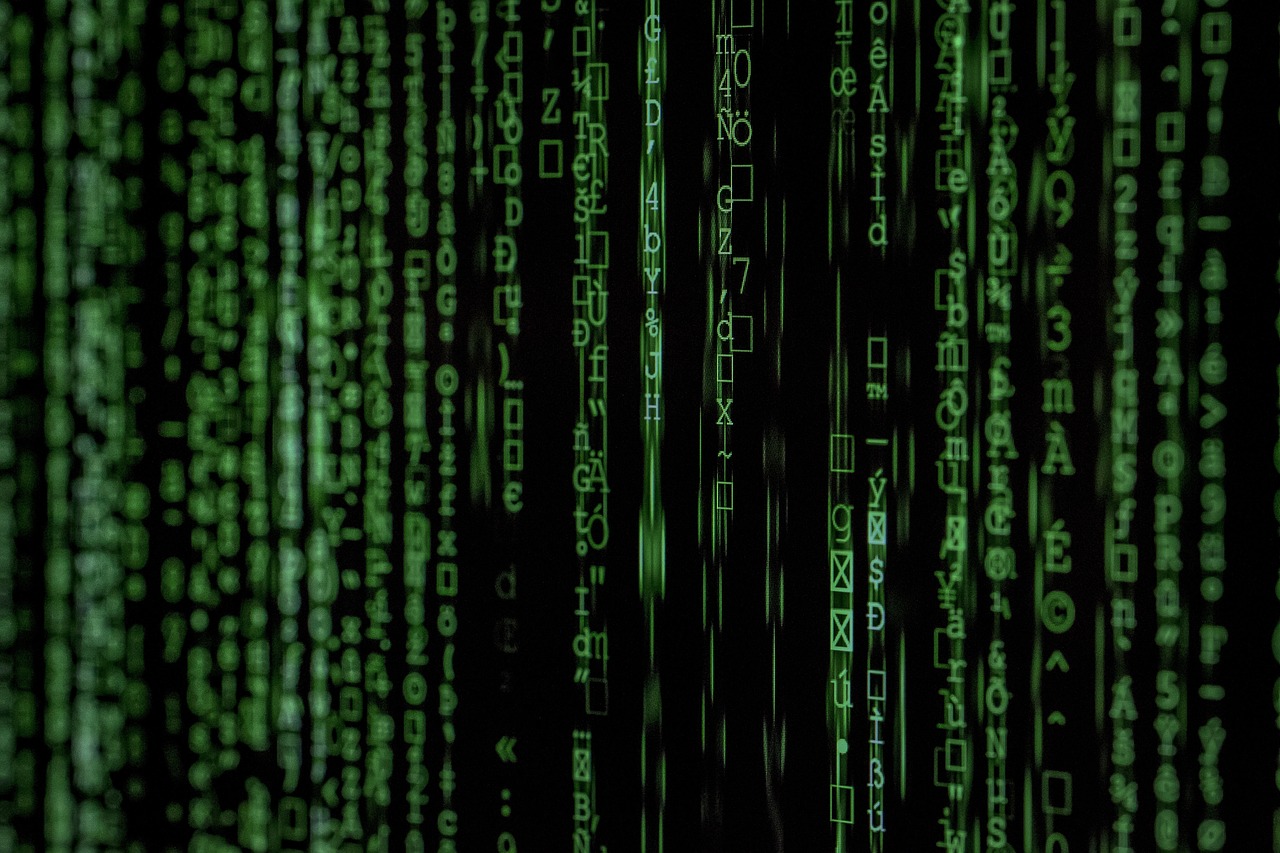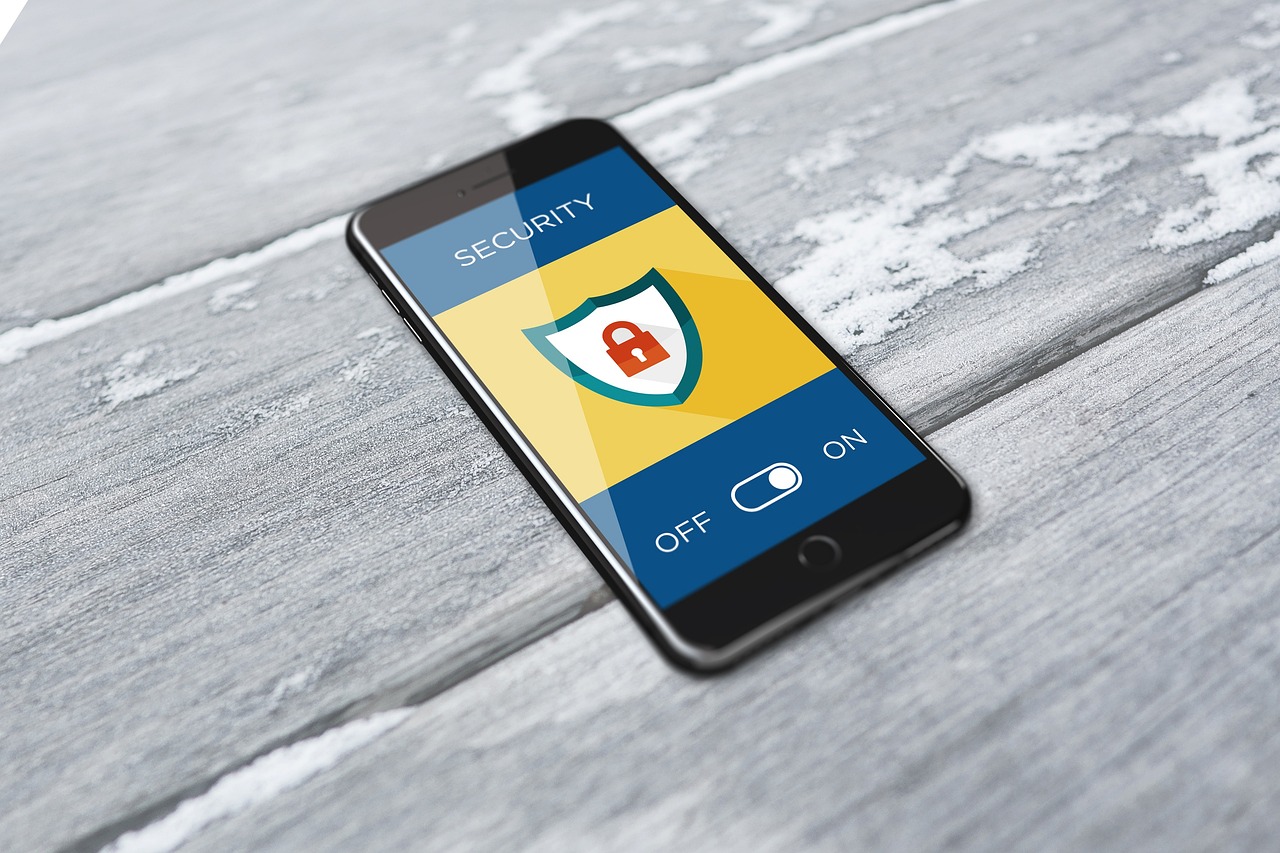Internet Privacy: Safety Measures to Consider
In today's hyper-connected world, where every click, like, and share is tracked, maintaining internet privacy has become more crucial than ever. With the rise of digital technology, our personal information is often just a few keystrokes away from being exposed. So, what can you do to ensure your online safety? This article delves into essential safety measures that can help you protect your personal information and enhance your overall security while navigating the vast digital landscape.
Internet privacy refers to the level of security you have over your personal information while using the internet. It's not just about keeping your secrets safe; it's about controlling who gets to see what you share online. In an age where data is often considered the new oil, understanding the importance of your digital footprint is vital. When you browse the web, send emails, or interact on social media, you're leaving traces of your personal information. This data can be collected, sold, or misused by various entities, including advertisers and cybercriminals. Therefore, being aware of your online presence and taking proactive measures is essential for safeguarding your privacy.
While the internet offers countless opportunities, it also harbors significant risks. Some of the most common threats to your internet privacy include:
- Data Breaches: These occur when hackers gain unauthorized access to databases, potentially exposing sensitive information.
- Phishing Attacks: These deceptive tactics trick users into providing personal information, often through fraudulent emails or websites.
- Surveillance: Both government and private entities may monitor your online activities, collecting data without your consent.
Understanding these threats is the first step in protecting yourself. Each of these risks can compromise your personal information, leading to identity theft or financial loss.
Thankfully, there are various tools available that can help you enhance your online privacy. Here are some popular options:
- VPNs (Virtual Private Networks): These create a secure connection to another network over the Internet, masking your IP address and encrypting your data.
- Encrypted Messaging Apps: Apps like Signal and WhatsApp offer end-to-end encryption, ensuring that only you and the recipient can read the messages.
- Privacy-Focused Browsers: Browsers such as Brave and DuckDuckGo prevent tracking and provide features that enhance your online anonymity.
Utilizing these tools can significantly reduce your exposure to online threats and help you navigate the web with greater peace of mind.
Adopting best practices is crucial in maintaining your internet privacy. Here are some actionable tips to consider:
- Use Strong Passwords: Create complex passwords that combine letters, numbers, and symbols. Consider using a password manager to keep track of them.
- Enable Two-Factor Authentication: This adds an extra layer of security by requiring a second form of identification before accessing your accounts.
- Regularly Update Software: Keeping your operating system and applications updated ensures that you have the latest security patches.
By implementing these best practices, you can mitigate security risks and protect your personal information from potential threats.
Social media platforms can be a double-edged sword when it comes to privacy. While they allow us to connect with friends and share experiences, they also pose significant risks to our personal information. It's essential to manage your privacy settings on these platforms actively. For instance, consider adjusting your profile visibility, limiting who can see your posts, and being cautious about the information you share. Remember, once something is posted online, it can be challenging to remove it entirely.
Understanding the legal framework surrounding internet privacy is essential for protecting your data. Regulations like the General Data Protection Regulation (GDPR) in Europe and the California Consumer Privacy Act (CCPA) in the United States set guidelines for how companies handle personal information. These laws empower users by providing rights to access, delete, and control their data. Familiarizing yourself with these regulations can help you understand your rights and the responsibilities of companies that collect your information.
As technology continues to evolve, so do the challenges and solutions for internet privacy. Emerging trends such as artificial intelligence and blockchain technology are beginning to shape the future of online privacy. AI can help detect and prevent cyber threats, while blockchain offers a decentralized way to store data securely. These advancements hold the potential to enhance privacy and security, but they also introduce new challenges that we must navigate carefully.
In conclusion, being proactive about your internet privacy is more important than ever. By understanding the threats, utilizing the right tools, and adopting best practices, you can take charge of your personal information and protect yourself in the digital age. Remember, your privacy is in your hands, and staying informed is the best defense against potential risks.
- What is internet privacy? Internet privacy is the ability to control what information you share online and who has access to it.
- How can I protect my privacy online? Use tools like VPNs, encrypted messaging apps, and strong passwords to enhance your online security.
- What are the common threats to internet privacy? Common threats include data breaches, phishing attacks, and surveillance by various entities.
- Are there laws protecting my online privacy? Yes, regulations like GDPR and CCPA provide guidelines for how companies must handle personal data.

Understanding Internet Privacy
In today’s hyper-connected world, internet privacy has become a topic of paramount importance. But what exactly does it mean? At its core, internet privacy refers to the ability of individuals and organizations to control their personal information and how it is used online. With every click, share, and search, we leave behind a digital footprint that can be tracked, analyzed, and exploited. This reality underscores why understanding internet privacy is not just a luxury but a necessity.
Imagine walking through a crowded street, and every passerby is taking notes on your conversations, preferences, and even your shopping habits. Sounds invasive, right? Unfortunately, this is akin to what happens online when we fail to protect our personal data. The significance of internet privacy extends beyond mere convenience; it impacts our personal security, freedom of expression, and even our reputation. Companies collect vast amounts of data, often without explicit consent, to create targeted advertisements or sell to third parties. Thus, the need for awareness is crucial.
Moreover, internet privacy is not just a personal concern; it has broader implications for society. Organizations that fail to protect user data can face severe legal repercussions and damage to their reputation. The importance of data protection can be illustrated by looking at high-profile data breaches that have compromised millions of users' information. For instance, the infamous Equifax breach in 2017 exposed sensitive information of over 147 million people, highlighting the dire consequences of inadequate privacy measures.
To truly grasp the concept of internet privacy, one must also consider the various elements that contribute to it. These include:
- Data Collection: Understanding what data is collected and how it’s used is essential.
- Data Storage: Knowing where and how your data is stored can help in assessing risks.
- Data Sharing: Awareness of who has access to your information can empower you to make informed choices.
In conclusion, the landscape of internet privacy is complex and ever-evolving. As technology advances, so do the threats to our personal information. By being proactive and informed, we can take steps to safeguard our online presence and ensure that our digital lives remain secure. The journey to understanding internet privacy is just the beginning; the next step is to implement protective measures that will shield our personal data from prying eyes.

Common Threats to Internet Privacy
In our hyper-connected world, the internet can feel like a vast ocean of information and interaction. However, lurking beneath the surface are numerous threats that can compromise our internet privacy. Understanding these threats is the first step in safeguarding your personal information. Let’s dive into some of the most common dangers that you might encounter while navigating the digital landscape.
One of the most notorious threats is data breaches. These occur when unauthorized individuals gain access to sensitive information, often through hacked databases. Imagine your personal data floating around like fish in a stream, vulnerable to anyone with a net. Companies, big and small, have fallen victim to breaches, leading to the exposure of millions of users' data. The ramifications can be severe, from identity theft to financial loss.
Another significant threat is phishing attacks. These are deceptive attempts to trick you into providing personal information, typically through emails or fake websites that appear legitimate. Picture this: you receive an email that looks like it’s from your bank, asking you to verify your account details. If you fall for it, you might as well be handing over your keys to a stranger. Phishing techniques have become increasingly sophisticated, making it crucial to stay vigilant and skeptical of unsolicited communications.
Additionally, surveillance is an ever-present concern. Governments and corporations often monitor online activities, collecting data on browsing habits, location, and personal preferences. This constant watch can feel like having a shadow that never leaves your side. While some argue that surveillance is necessary for security, it raises ethical questions about the extent to which our privacy should be compromised in the name of safety.
Furthermore, malware poses a significant risk to internet privacy. This malicious software can infiltrate your devices, stealing sensitive information or even taking control of your system. Think of malware as a burglar that sneaks into your house while you’re asleep, rifling through your personal belongings. To combat this, it’s essential to have reliable antivirus software and to be cautious about the links you click and the software you download.
In addition to these threats, there are also invasive tracking technologies employed by websites and advertisers. Cookies, for example, collect data about your online behavior, creating a digital footprint that can be used to target you with personalized ads. While some cookies are harmless, others can infringe on your privacy by sharing your data with third parties without your consent. It’s like having someone follow you around the mall, taking notes on everything you look at and buy.
To summarize, the internet is fraught with potential dangers that can threaten your privacy. From data breaches to phishing attacks, surveillance, malware, and invasive tracking, being aware of these threats is crucial. By understanding the landscape, you can take proactive measures to protect yourself and your personal information. Remember, in the online world, knowledge is power!
- What is a data breach? A data breach occurs when unauthorized individuals access sensitive information, often leading to the exposure of personal data.
- How can I recognize a phishing email? Look for suspicious sender addresses, poor grammar, and urgent requests for personal information.
- What is malware? Malware is malicious software designed to infiltrate and damage your devices, often for the purpose of stealing information.
- How do I protect myself from online tracking? Use privacy-focused browsers, clear your cookies regularly, and consider using browser extensions that block trackers.

Tools for Enhancing Privacy
In today's digital landscape, where every click can be tracked and every interaction can be recorded, enhancing your internet privacy has become more crucial than ever. It's like navigating through a bustling marketplace where every vendor is eager to know your preferences and habits. To safeguard your personal information, you need to arm yourself with the right tools. Let’s dive into some of the most effective tools that can help you maintain your privacy online.
One of the most popular and effective tools is a Virtual Private Network (VPN). Think of a VPN as your personal security guard in the online world. It encrypts your internet connection, making it much harder for hackers, government agencies, or even your Internet Service Provider (ISP) to snoop on your online activities. By masking your IP address, a VPN allows you to surf the web anonymously, which is especially useful when using public Wi-Fi networks. Not all VPNs are created equal, though; it's essential to choose one that doesn't log your activity and has a solid reputation for privacy. Here’s a quick comparison of some popular VPNs:
| VPN Service | No-Log Policy | Encryption Level | Price (Monthly) |
|---|---|---|---|
| NordVPN | Yes | AES-256 | $11.95 |
| ExpressVPN | Yes | AES-256 | $12.95 |
| Surfshark | Yes | AES-256 | $12.95 |
Another essential tool for enhancing privacy is encrypted messaging apps. In a world where your conversations can be intercepted, using apps that prioritize security can make a significant difference. Apps like Signal and Telegram offer end-to-end encryption, ensuring that only you and the person you're communicating with can read the messages. It’s like sending a letter in a locked box that only the recipient has the key to. This way, even if someone tries to intercept your messages, all they’ll find are scrambled letters.
Moreover, using a privacy-focused browser can significantly enhance your online experience. Browsers like Brave or Firefox come with built-in features that block trackers and ads, which often invade your privacy. When you use these browsers, it’s like having a shield that protects you from unwanted attention while you browse the web. They also offer options to clear cookies and cache, which is essential for maintaining your privacy over time.
Additionally, consider utilizing password managers. With the increasing number of accounts we manage, it’s easy to fall into the trap of using weak or repetitive passwords. A password manager helps you generate and store complex passwords securely, reducing the risk of unauthorized access. It's like having a vault where you can keep all your keys safe and sound without worrying about losing them.
Finally, don’t overlook the importance of two-factor authentication (2FA). This extra layer of security is like a bouncer at a club who checks your ID before letting you in. Even if someone manages to steal your password, they won’t be able to access your account without the second form of verification, which often comes in the form of a code sent to your mobile device. Enabling 2FA is a simple yet effective way to fortify your accounts against unauthorized access.
In conclusion, enhancing your internet privacy requires a combination of the right tools and practices. By integrating VPNs, encrypted messaging apps, privacy-focused browsers, password managers, and two-factor authentication into your digital life, you can significantly reduce the risk of your personal information being compromised. Remember, in the vast expanse of the internet, being proactive about your privacy is your best defense.
- What is a VPN, and why do I need one? A VPN encrypts your internet connection, providing anonymity and security while you browse online.
- Are encrypted messaging apps safe? Yes, they provide end-to-end encryption, ensuring that only you and the recipient can read the messages.
- How can I choose a reliable password manager? Look for features like strong encryption, cross-platform support, and a no-log policy.
- What is two-factor authentication? It's an additional security measure that requires not only a password but also a second form of verification to access your account.

Best Practices for Online Security
In today's digital landscape, where every click and keystroke can be monitored, adopting is not just a recommendation; it's a necessity. Think of your online presence as a house. Would you leave the front door wide open? Of course not! Similarly, you need to lock down your digital life. Here are some essential strategies that can help you safeguard your personal information and enhance your online security.
First and foremost, one of the most effective ways to protect yourself is by using strong passwords. A strong password is like a robust lock—it keeps the intruders out. Instead of using easily guessable passwords like "123456" or your pet's name, opt for a combination of uppercase letters, lowercase letters, numbers, and special characters. A password manager can be a lifesaver here, allowing you to generate and store complex passwords without the hassle of remembering each one.
Moreover, enabling two-factor authentication (2FA) adds an extra layer of security. This is akin to having a second lock on your door. Even if someone manages to get hold of your password, they would still need a second piece of information—typically a code sent to your phone or email—to gain access. It's a simple step that can significantly enhance your security.
Another crucial aspect is to keep your software updated. Software updates often contain patches for security vulnerabilities that hackers can exploit. Just like you wouldn't ignore a leaky roof, don't overlook those update notifications. Regularly updating your operating system, browsers, and apps ensures that you have the latest security features and fixes at your disposal.
Moreover, be cautious about the information you share online. It’s tempting to post every detail of your life on social media, but remember that oversharing can lead to privacy breaches. Adjust your privacy settings to limit who can view your posts and personal information. Think of your social media profiles as public spaces—would you shout your secrets in a crowded room? Probably not!
When browsing the web, consider using a Virtual Private Network (VPN). A VPN encrypts your internet connection, making it much harder for anyone to snoop on your online activities. It's like having a secure tunnel for your data, keeping prying eyes at bay. This is especially important when using public Wi-Fi networks, which can be breeding grounds for cybercriminals.
Finally, educate yourself about potential threats. Knowledge is power! Familiarize yourself with common scams like phishing attacks, where attackers impersonate legitimate entities to steal your information. Recognizing the signs of a scam email or message can help you avoid falling victim to these schemes. Always verify the source before clicking on links or providing any personal information.
In summary, taking charge of your online security is crucial in this digital age. By implementing these best practices, you can significantly reduce your risk of becoming a victim of cybercrime. Remember, your online safety is in your hands!
Q: What is a strong password?
A: A strong password typically includes a mix of uppercase letters, lowercase letters, numbers, and special characters, making it difficult for others to guess.
Q: Why should I enable two-factor authentication?
A: Two-factor authentication adds an extra layer of security by requiring a second form of verification, making it harder for unauthorized users to access your accounts.
Q: How often should I update my software?
A: You should update your software as soon as updates are available. Regular updates help protect against newly discovered vulnerabilities.
Q: Is using public Wi-Fi safe?
A: Public Wi-Fi can be risky. If you must use it, consider using a VPN to encrypt your connection and protect your data from potential snoopers.
Q: How can I recognize phishing attempts?
A: Look for signs such as poor grammar, unfamiliar sender addresses, and urgent requests for personal information. Always verify the source before clicking on links.

The Role of Social Media in Privacy
Social media has become an integral part of our daily lives, allowing us to connect with friends, share experiences, and even promote businesses. However, with this convenience comes a significant risk to our privacy. Think of social media as a bustling marketplace; while it offers opportunities for interaction, it also exposes you to countless eyes, some of which may not have your best interests at heart. So, how do we navigate this digital landscape without compromising our personal information?
One of the primary concerns with social media is the sheer amount of personal data we willingly share. From our birthdays and locations to our interests and daily activities, these platforms collect and store vast amounts of information. This data can be used for targeted advertising, but it can also fall into the wrong hands, leading to identity theft or unwanted solicitations. To illustrate this, consider the following:
| Type of Information Shared | Potential Risks |
|---|---|
| Email Address | Phishing attacks and spam |
| Location Data | Stalking or physical threats |
| Birthdate | Identity theft |
| Photos | Misuse or unauthorized sharing |
To mitigate these risks, it's crucial to manage your privacy settings diligently. Most social media platforms offer options to control who can see your posts, friend requests, and personal information. For instance, consider the following steps:
- Review your privacy settings regularly.
- Limit your audience to friends only when posting sensitive information.
- Be cautious about accepting friend requests from unknown individuals.
- Think twice before sharing location tags or check-ins.
Moreover, it's essential to be aware of the implications of oversharing. Each post, photo, or comment can contribute to a digital footprint that can be tracked and analyzed. Imagine your online presence as a trail of breadcrumbs; once you leave them, they're challenging to erase. This is especially pertinent for young users who may not fully grasp the long-term consequences of their digital interactions.
Lastly, while social media can enhance connectivity, it can also foster a culture of comparison and anxiety. This constant exposure can lead to a false sense of reality, where individuals feel pressured to present a curated version of their lives. This not only affects mental health but can also lead to oversharing, which compromises privacy. Remember, just because you can share something doesn’t mean you should.
In conclusion, social media plays a dual role in our lives. It offers opportunities for connection and expression but also poses significant risks to our privacy. By taking proactive steps to manage our information and being mindful of what we share, we can enjoy the benefits of social media while minimizing the risks. So, the next time you’re about to post, ask yourself: is this information worth sharing?

Legal Aspects of Internet Privacy
When we talk about internet privacy, it’s essential to understand the legal landscape that governs it. In our increasingly digital world, where personal information is often just a click away, laws and regulations play a vital role in protecting individuals' data. Let's dive into some of the most significant legal frameworks that shape internet privacy today.
One of the most notable pieces of legislation is the General Data Protection Regulation (GDPR), which came into effect in May 2018. This regulation was enacted by the European Union and has set a high standard for data protection and privacy. It gives individuals more control over their personal data and requires organizations to be transparent about how they collect and use this information. For instance, companies must obtain explicit consent from users before processing their data, and they must also provide an easy way for users to withdraw that consent. This is a game-changer in the realm of internet privacy, as it empowers users to take charge of their own information.
Another significant regulation is the California Consumer Privacy Act (CCPA), which took effect in January 2020. This law provides California residents with the right to know what personal data is being collected about them, the ability to access that data, and the option to request its deletion. While the CCPA is specific to California, it has influenced privacy discussions across the United States, prompting other states to consider similar regulations. With the rise of data breaches and privacy violations, such laws are crucial for holding companies accountable for their data practices.
In addition to these regulations, various other laws exist globally that impact internet privacy. For example, countries like Canada have their own privacy laws, such as the Personal Information Protection and Electronic Documents Act (PIPEDA), which governs how private-sector organizations collect, use, and disclose personal information. Similarly, Australia has the Privacy Act, which outlines how personal data should be handled. These laws are essential in creating a framework for protecting user data, but they also come with their challenges, especially in terms of enforcement and compliance.
However, the legal landscape is not without its complexities. Different countries have varying approaches to data privacy, leading to a patchwork of regulations that can be confusing for both individuals and organizations. For instance, while GDPR is stringent, other regions may have less rigorous standards, making it easier for companies to exploit loopholes. This inconsistency can leave users vulnerable, as they may not be adequately protected when interacting with international companies.
Moreover, the rapid advancement of technology presents ongoing challenges for legal frameworks. Emerging technologies like artificial intelligence and blockchain raise questions about data ownership and privacy. For example, how do we ensure that AI systems respect user privacy while still being effective? And with blockchain's decentralized nature, how do we regulate data that isn't stored in a single location? These questions highlight the need for continuous evolution of privacy laws to keep pace with technological advancements.
In conclusion, understanding the legal aspects of internet privacy is crucial for anyone navigating the digital landscape. As individuals, we must stay informed about our rights regarding personal data and the laws that protect us. Organizations, on the other hand, need to prioritize compliance with these regulations to avoid hefty fines and maintain user trust. The future of internet privacy will undoubtedly be shaped by ongoing legal developments, so staying updated is essential for everyone involved.
- What is GDPR?
The General Data Protection Regulation (GDPR) is a comprehensive data protection law in the EU that enhances individuals' rights regarding their personal data.
- What rights do I have under CCPA?
Under the CCPA, California residents have the right to know what personal information is collected, access that information, and request its deletion.
- How do different countries regulate internet privacy?
Countries have varying laws, with some having strict regulations like GDPR, while others may have more lenient standards.
- What challenges do new technologies pose for privacy laws?
Emerging technologies can complicate existing regulations, raising questions about data ownership, consent, and privacy rights.

Future Trends in Internet Privacy
As we look ahead, the landscape of internet privacy is set to evolve dramatically, shaped by technological advancements and the growing awareness of the importance of protecting personal data. One of the most significant trends is the rise of artificial intelligence (AI). AI is not just a buzzword; it's becoming a pivotal player in enhancing privacy measures. For instance, AI can analyze vast amounts of data to detect anomalies and potential breaches faster than any human could. Imagine having a digital watchdog that learns and adapts continuously to protect your information from cyber threats.
Another trend gaining traction is the adoption of blockchain technology. While often associated with cryptocurrencies, blockchain offers a decentralized approach to data management that can enhance privacy. By allowing users to control their data and how it is shared, blockchain presents a promising solution to the centralization of personal information that many current platforms rely on. It's like having a digital vault where you hold the keys, rather than relying on a third party to safeguard your valuables.
Moreover, we are witnessing a shift towards privacy by design. This means that companies are increasingly incorporating privacy features into their products from the ground up, rather than as an afterthought. For example, new applications are being developed with built-in encryption and minimal data collection practices, ensuring that users' privacy is prioritized right from the start. This proactive approach is essential in a world where data breaches have become alarmingly common.
To illustrate some of these trends, consider the following table that highlights key technologies and their potential impact on internet privacy:
| Technology | Description | Impact on Privacy |
|---|---|---|
| Artificial Intelligence | Machine learning algorithms that detect and respond to security threats. | Faster detection of breaches and enhanced user protection. |
| Blockchain | Decentralized ledger technology that allows users to control their data. | Increased data ownership and reduced reliance on third-party services. |
| Privacy by Design | Incorporating privacy features into products from the outset. | Proactive safeguarding of user information, reducing risks of data breaches. |
Additionally, the increased regulation surrounding data privacy will continue to shape the future. Laws like the General Data Protection Regulation (GDPR) and the California Consumer Privacy Act (CCPA) have set a precedent that other regions are likely to follow. As consumers become more aware of their rights, businesses will be compelled to adopt more stringent data protection measures. This is a win-win scenario; consumers gain more control over their information, while companies that prioritize privacy can build trust and loyalty.
Lastly, we can't overlook the growing importance of user education. As internet users become more aware of privacy issues, there will be a greater demand for resources and tools that empower individuals to take control of their online presence. This could lead to the development of comprehensive educational programs that teach users about safe browsing habits, the importance of strong passwords, and how to recognize phishing attempts. Think of it as a digital self-defense class for the internet age!
In conclusion, the future of internet privacy is bright but requires collective effort from individuals, businesses, and regulators. By embracing emerging technologies, advocating for robust privacy laws, and prioritizing user education, we can create a safer online environment for everyone. So, are you ready to take charge of your privacy in this ever-evolving digital landscape?
- What is the most effective way to protect my online privacy? Using strong passwords, enabling two-factor authentication, and being cautious about the information you share online are essential steps.
- How does AI enhance internet privacy? AI can quickly analyze data patterns to identify potential threats, enabling faster responses to breaches.
- What role does legislation play in internet privacy? Laws like GDPR and CCPA establish guidelines for data protection, ensuring that companies prioritize user privacy.
- Can blockchain technology improve privacy? Yes, blockchain allows users to control their data without relying on centralized services, enhancing privacy and security.

Conclusion: Taking Charge of Your Privacy
In today's fast-paced digital world, taking control of your internet privacy is more crucial than ever. With the constant barrage of information and the ever-present threat of data breaches, it can feel overwhelming. But don't worry! You have the power to safeguard your personal information and enhance your online security. By adopting proactive measures, you can navigate the internet with confidence.
First and foremost, it's essential to understand that your online actions have consequences. Every click, every share, and every login can potentially expose your personal data. Therefore, being vigilant is key. Start by implementing the privacy tools we've discussed, such as VPNs and encrypted messaging apps. These tools act like a shield, protecting your sensitive information from prying eyes.
Moreover, consider the importance of strong passwords. Think of your password as the key to your digital home; it needs to be robust enough to withstand attempts at unauthorized entry. Utilizing a password manager can help you create and manage complex passwords without the hassle of remembering them all. Coupled with two-factor authentication, you can significantly reduce the risk of unauthorized access to your accounts.
Social media is another area where privacy can easily slip through the cracks. Many users unknowingly share personal information that can be exploited. Take the time to review your privacy settings on platforms like Facebook and Instagram. Make sure you know who can see your posts and personal details. Remember, it's better to be safe than sorry!
As we look towards the future, the landscape of internet privacy will continue to evolve. Technologies like AI and blockchain are paving the way for new privacy solutions. Staying informed about these trends will enable you to adapt your strategies and maintain your privacy in an ever-changing environment.
Ultimately, the responsibility for your internet privacy lies in your hands. By being proactive and informed, you can take charge of your online presence. So, let's not wait for a data breach to wake us up. Start implementing these measures today, and empower yourself to enjoy the internet safely and securely.
- What is internet privacy?
Internet privacy refers to the level of security and confidentiality one has while using the internet, including the protection of personal data from unauthorized access.
- Why is internet privacy important?
It is essential to protect personal information from cyber threats, maintain control over one’s data, and prevent identity theft.
- How can I enhance my online privacy?
You can enhance your online privacy by using VPNs, encrypted messaging apps, strong passwords, and being cautious about the information you share on social media.
- What are the legal protections for internet privacy?
Laws like GDPR (General Data Protection Regulation) and CCPA (California Consumer Privacy Act) provide frameworks for protecting user data and privacy rights.
Frequently Asked Questions
- What is internet privacy and why is it important?
Internet privacy refers to the ability to control what personal information is shared online and with whom. It's crucial because, in today's digital world, our data is constantly being collected and analyzed by various entities, including companies and governments. Protecting your privacy helps safeguard your identity, personal information, and even your financial security from potential threats.
- What are some common threats to my online privacy?
Common threats include data breaches, where hackers steal personal information; phishing attacks, which trick you into providing sensitive data; and surveillance, where your online activities are monitored without your consent. Being aware of these threats is the first step toward protecting yourself online.
- How can I enhance my internet privacy?
You can enhance your privacy by using tools like Virtual Private Networks (VPNs), encrypted messaging apps, and privacy-focused browsers. These tools help shield your data from prying eyes and ensure that your online activities remain confidential.
- What are some best practices for maintaining online security?
Some best practices include using strong, unique passwords for different accounts, enabling two-factor authentication for an extra layer of security, and regularly updating your software to patch any vulnerabilities. These steps can significantly reduce your risk of falling victim to cyber threats.
- How does social media affect my privacy?
Social media can be a double-edged sword; while it allows you to connect with others, it also poses risks to your privacy. It's essential to manage your privacy settings and be mindful of the personal information you share, as this can be exploited by malicious actors.
- What legal protections exist for internet privacy?
Several laws, such as the General Data Protection Regulation (GDPR) in Europe and the California Consumer Privacy Act (CCPA) in the U.S., provide legal frameworks for protecting user data. These regulations require companies to be transparent about how they collect and use personal information, giving users more control over their data.
- What are future trends in internet privacy?
Future trends include the rise of artificial intelligence (AI) and blockchain technology, which could offer new ways to enhance privacy and security online. These technologies may help create more secure environments for data storage and sharing, making it harder for unauthorized parties to access personal information.
- How can I take charge of my internet privacy?
Taking charge of your privacy involves being proactive. Educate yourself about the tools and practices available to protect your information. Regularly review your privacy settings on various platforms, stay informed about potential threats, and adopt the measures discussed to safeguard your online presence.



















